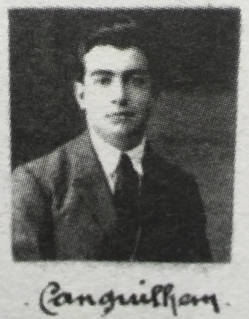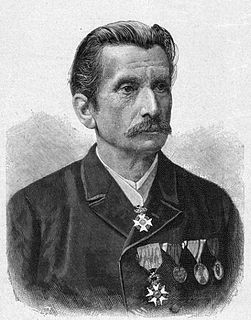A Quote by Jean Rostand
Whether man is disposed to yield to nature or to oppose her, he cannot do without a correct understanding of her language
Related Quotes
Men and women are made for each other, but their mutual dependence differs in degrees; man is dependent on woman through his desires; woman is dependent on man through her desires and also through her needs; he could do without her better than she can do without him. She cannot fulfill her purpose in life without his aid, without his goodwill, without his respect.....Nature herself has decreed that woman, both for herself and her children, should be at the mercy of man s judgment.
Nature! We live in her midst and know her not. She is incessantly speaking to us, but betrays not her secret. We constantly act upon her, and yet have no power over her. Variant: NATURE! We are surrounded and embraced by her: powerless to separate ourselves from her, and powerless to penetrate beyond her.
You cannot hammer a girl into anything. She grows as a flower does, she will wither without sun; she will decay in her sheath as a narcissus will if you do not give her air enough; she might fall and defile her head in dust if you leave her without help at some moments in her life; but you cannot fetter her; she must take her own fair form and way if she take any.
In truth, one cannot, it seems, oppose mechanism and finalism, one cannot oppose mechanism and anthropomorphism, for if the functioning of a machine is explained by relations of pure causality, the construction of a machine can be understood neither without purpose nor without man. A machine is made by man and for man, with a view toward certain ends to be obtained, in the form of effects to be produced.
In I Praise My Destroyer, Diane Ackerman demonstrates once again her love for the specific language that rises from the juncture of self and the natural world, and her skillful use of that language. Whether she turns her attention to the act of eating an apricot 'the color of shame and dawn,' or to 'the omnipotence of light,' or to grief when 'All the greens of summer have blown apart,' her linking of unique images, her energetic wit and whimsy, her compassionate investment in life, always bring new pleasures and perceptions to the reader.
I saw sensuality as sacred, indeed the only sacredness, I saw woman and her beauty as divine since her calling is the most important task of existence: the propagation of the species. I saw woman as the personification of nature, as Isis, and man as her priest, her slave; and I pictured her treating him as cruelly as Nature, who, when she no longer needs something that has served her, tosses it away, while her abuses, indeed her killing it, are its lascivious bliss.
Art is the child of Nature; yes, Her darling child, in whom we trace The features of the mother's face, Her aspect and her attitude, All her majestic loveliness Chastened and softened and subdued Into a more attractive grace, And with a human sense imbued. He is the greatest artist, then, Whether of pencil or of pen, Who follows Nature.
You may command Nature to the extent only in which you are willing to obey her. You cannot intelligently obey that which you do not comprehend. Therefore I also say, ask of Nature that you may be one with her and she will whisper her secrets to you to the extent in which you are prepared to listen. Seek to be alone much to commune with Nature and be thus inspired by her mighty whisperings within your consciousness. Nature is a most jealous god, for she will not whisper her inspiring revelations to you unless you are absolutely alone with her.
Nature seemed to me benign and good; I thought she loved me, outcast as I was; and I, who from man could anticipate only mistrust, rejection, insult, clung to her with filial fondness. To-night at least, I would be her guest-as I was her child; my mother would lodge me without money and without price.
As to the origin of civil Societies or Governments; the Author of our Being, has given Man a Nature to be fitted for, and disposed to Society. It was not good for Man at first to be alone; his nature is social, having various Affections, Propensities and Passions, which respect Society, and cannot be indulged without a social Intercourse.
English literature, from the days of the minstrels to the Lake Poets,--Chaucer and Spenser and Milton, and even Shakespeare, included,--breathes no quite fresh and, in this sense, wild strain. It is an essentially tame and civilized literature, reflecting Greece and Rome. Her wildness is a greenwood, her wild man a Robin Hood. There is plenty of genial love of Nature, but not so much of Nature herself. Her chronicles inform us when her wild animals, but not the wild man in her, became extinct.



































